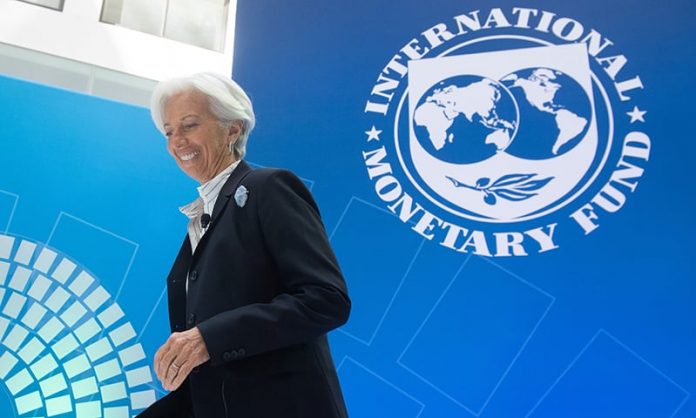The International Monetary Fund on Thursday warned the United States that escalating trade disputes or an abrupt downturn in financial markets could pose substantial risks for the US economy.
The international lender, in a review of US policies, said the US economy was on track to grow 2.6 per cent this year. That was quicker than the IMF’s 2.3pc growth forecast from April and was boosted by easy financial market conditions.
But the US financial system appears increasingly vulnerable and financial conditions could tighten as investors worry more about America’s trade disputes, IMF officials said.
“That is the risk we are most concerned about for the US economy,” Nigel Chalk, the IMF’s mission chief for the United States, said at a news conference.
In its report, the IMF criticised the Trump administration’s efforts to overhaul global trade relationships by raising tariffs and said it was especially important to resolve a trade dispute with China. That dispute poses a threat to the global economy, the IMF said.
Trump has hiked tariffs on billions of dollars in Chinese imports and last week threatened to raise tariffs on all Mexican imports if Mexico doesn’t crack down on illegal immigration into the United States.
“Rising import tariffs and other steps taken by the administration are undermining the global trading system,” the report said.
The IMF also said US financial regulators haven’t done enough to counter rising vulnerabilities in the financial system such as historically high corporate leverage and weakening underwriting standards. This could make a financial downturn hit the U.S. economy harder, the IMF said.
The Standard & Poor’s 500 index of US equity prices hit a record high in April but has fallen about 4pc in the last month as investors worried that trade wars and a sagging global economy might depress the US growth outlook.
“An abrupt reversal of this accommodative environment, interacting with leveraged corporate balance sheets, could create a significant downdraft to activity, investment, and job creation,” the IMF said.
It criticised US regulators for offering “little institutional response to counter these growing risks” and for instead easing regulatory constraints.




